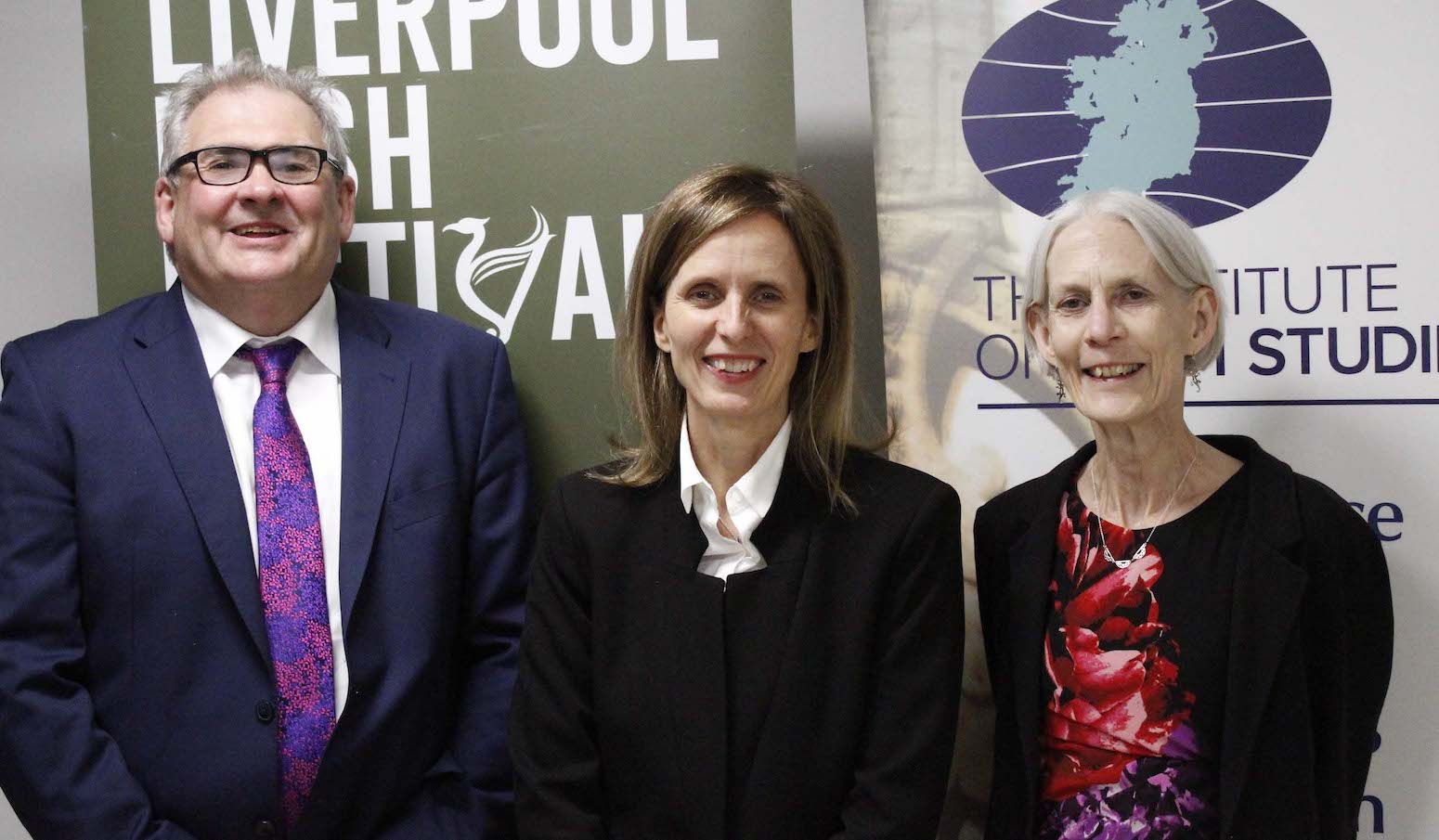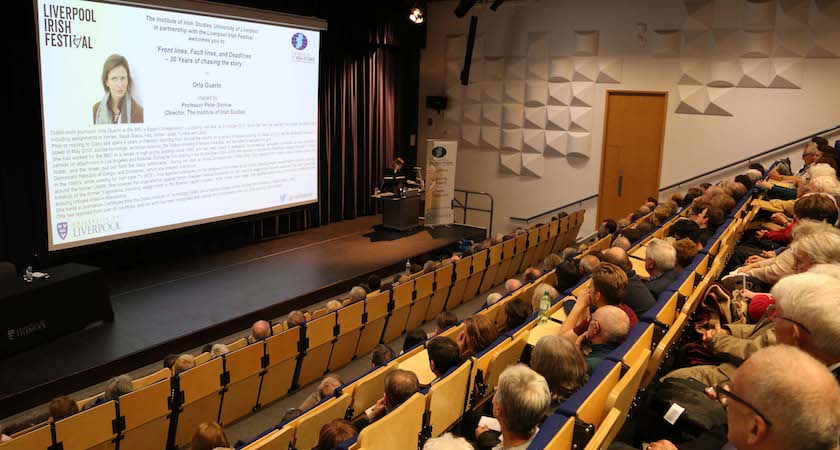“IT HAS always been a great help,” Orla Guerin says of the Irish passport that accompanies her to the world’s most war-ravaged and volatile countries.
She is the owner of, not one but two passports bearing Ireland’s symbolic harp.
One is usually perched on an official's desk waiting to be visa stamped and approved, the other remains her constant travel companion.
“It’s always been a great help,” she says, “and is often a conversation starter. There’s no colonial baggage and I find there’s a great welcome for the Irish.
“I'd love to have three Irish passports but I’ve been told nobody in the State has three,” she jokes.
As the BBC’s Egypt Correspondent since 2013 and having spent 30 years on the frontline witnessing the worst sides of humanity, the Dubliner radiates a warmth coupled with a wickedly Irish sense of humour.
“To tell the world, to bear witness,” that is her purpose, she says. “But there are risks that come with the territory, we all know it.”
Guerin is back in Britain to take part in the 2017 Liverpool Irish Festival.
Her talk Front lines, Fault lines, and Deadlines – 30 Years of chasing the story is one of three public events hosted by The Institute of Irish Studies during the 2017 festival.
It's a sell-out, with a waiting list of over 150 people unlucky enough not to be among the full house at the University’s of Liverpool’s Eleanor Rathbone Theatre.
“The only other standing ovation here was for former President of Ireland Mary Robinson,” one of the organisers tells me afterwards as applause rings out in the auditorium for the Irish woman who admits that when she turns up, it usually means trouble.
Guerin has reported from more than 60 countries including Yemen, Saudi Arabia, Iraq, Jordan, Israel, Tunisia, and Libya.
During her first posting in the Middle East, from 2000-2005, she covered the death of Yasser Arafat and the Israeli pull-out from the Gaza settlements.
Before moving to Cairo, she spent four years in Pakistan reporting on suicide bombings, sectarian violence, the Taliban shooting of Malala Yousufzai and the battle for education for girls.
During her time as Africa Correspondent, 2006-2008, she reported from conflict zones including Darfur, the Democratic Republic of Congo and Zimbabwe - which she entered undercover.
“Small moments and simple decisions that can change everything,” the award-winning journalist says. “But the hardest part is deciding to leave and saying goodbye to those who cannot.”
Guerin cut her teeth in the art of war reporting as a 23-year-old with Irish broadcaster RTÉ, who “overlooked a little inexperience” when they sent her on her first foreign assignment to Russia in 1990.
There she reported on the collapse of the former Soviet Union, covering the coup attempt against former President Mikhail Gorbachev in 1991.
Her first war zone experience came just a year later when she arrived in Bosnia in May 1992 as the city of Sarajevo lay under siege by Bosnian Serbs and Radovan Karadzic.
It was there that she experienced the death of a young Catalan photographer - part of the press convoy – who died having gone back into the field one last time as they were being evacuated.
His death, and the others that have followed over the years, have left their scars.
“Be on time and be polite and if anyone says no just pretend you didn't hear them.”
That was the advice of her first editor at RTÉ. It’s advice she still follows today – that and if someone offers you tea, take it.
“Drink the tea even if you don't want it, there are people who'll shoot you if you don't,” she says.
 Professor Peter Shirlow, Director, The Institute of Irish Studies; Orla Guerin and Professor Lin Foxhall, Head, School of Histories, Languages and Cultures, University of Liverpool.
Professor Peter Shirlow, Director, The Institute of Irish Studies; Orla Guerin and Professor Lin Foxhall, Head, School of Histories, Languages and Cultures, University of Liverpool.In the Q&A session that follows one woman – who spent 10 years living in Yemen with her husband - raises her hand simply to say ‘thank you’.
It’s a sentiment shared by the rest of the room.
Guerin’s humourous tones return when she lists the valuable lessons and skills she’s learned over the years.
How to reverse a five tonne armoured car at speed; the difference between incoming and outgoing fire, how to duck and (of course) how to drink tea by the gallon.
“You learn to sleep with the heels of your feet to the door,” she adds, “that’s one from the survival guide.”
Later, she’s asked if there has ever been an assignment she’s turned down.
“Honestly no. The instinct is that you want to go,” she says. You can almost see her recall the countless times she’s found herself packing a bag, running out the door and to the airport at 5am.
“But you can turn down an assignment if the desire is there.”
Guerin acknowledges the emotional cost of her job – ‘it’s fuelled by a combination of adrenaline and denial, some like booze’.
But, she says, protection comes in strange ways.
Often it’s in the shape of the mundane exchanges with her editors back in London as they to and fro over time slots for her news reports.
“Deadlines are the scaffolding of our lives,” she says. “We count the seconds, not just the hours and minutes.
"We all lobby for our stories. My tombstone will read...'Here lies Orla who wanted more time'.
She ends with a quote by the late Irish poet Seamus Heaney.
‘History says, don't hope on this side of the grave, but then, once in a lifetime the longed-for tidal wave of justice can rise up and hope and history rhyme.’
The room is on its feet. Guerin modestly bows her head.
The applause echoes around the room and fades slowly into the night.


